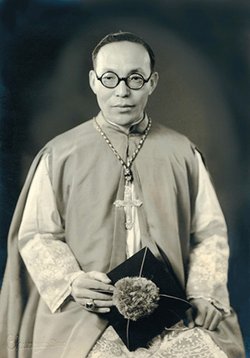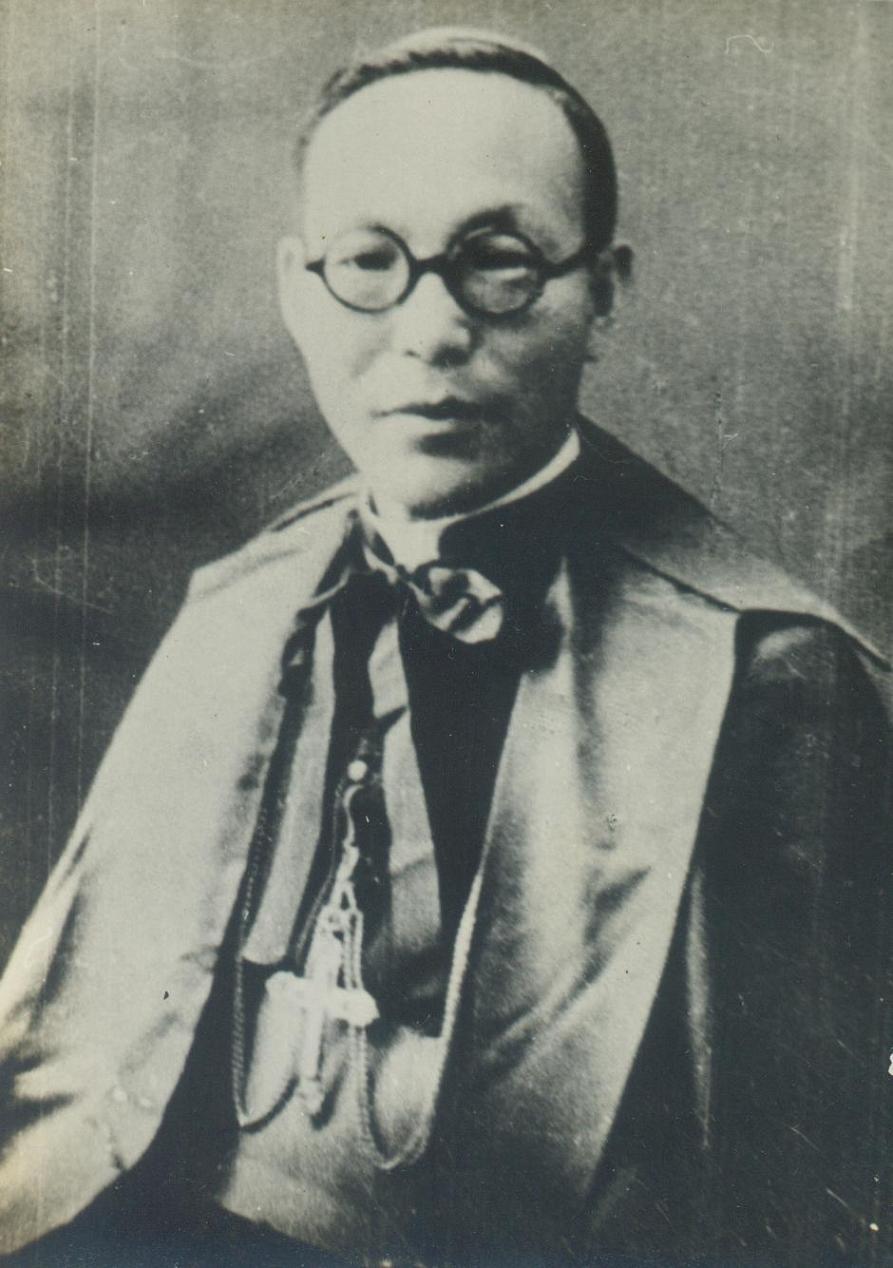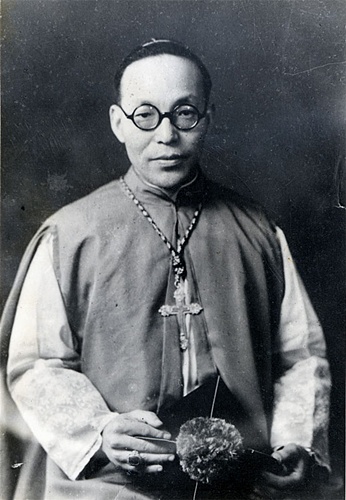Ordained to the priesthood on May 25, 1933, at the early age of 37, Father Francis was appointed Apostolic Vicar of Heijô by Pope Pius XII, receiving his episcopal consecration with the Titular See of Auzia on June 29, 1944, from Bishop Bonifatius Josef Sauer OSB., assisted by Bishops Irenaeus Hayasaka and Paul Roh Ki-nam.
Imprisoned by the Communist Regime of Kim Il-sung in 1949, he disappeared without trace and to this day no one knows anything about his whereabouts. In solidarity with Korean Catholics suffering under the Reds, Pope John XXIII erected P'yong-yang as a Diocese and named Bishop Hong as its first, and, up to June 2013, only, Ordinary on March 10, 1962.
According to Cardinal Nicolas Cheong Jin-suk, speaking in 2006, "There's no knowledge of priests surviving persecution that came in the late forties, when 166 priests and religious were killed or kidnapped". The Pontifical Yearbook kept describing him as 'missing' until June 2013, as "a gesture by the Holy See to point to the tragedy that the Church in Korea has suffered and is still going through". Acknowledging his death, reasoning that Bishop Hong had surely died long ago, the Bishops of South Korea called upon the Congregation for the Causes of Saints to regard him, along with other Catholics who died under persecution in North Korea, as a martyr for the faith.
With his death formally acknowledged by the Vatican in 2013, shortly afterwards the Korean bishops' conference asked the Congregation for the Causes of Saints for a 'nihil obstat' to the opening of the cause of beatification for Bishop Francis Hong Yong-ho as well as eighty of his companions, candidating him thus to become North Korea's first canonized saint.
Ordained to the priesthood on May 25, 1933, at the early age of 37, Father Francis was appointed Apostolic Vicar of Heijô by Pope Pius XII, receiving his episcopal consecration with the Titular See of Auzia on June 29, 1944, from Bishop Bonifatius Josef Sauer OSB., assisted by Bishops Irenaeus Hayasaka and Paul Roh Ki-nam.
Imprisoned by the Communist Regime of Kim Il-sung in 1949, he disappeared without trace and to this day no one knows anything about his whereabouts. In solidarity with Korean Catholics suffering under the Reds, Pope John XXIII erected P'yong-yang as a Diocese and named Bishop Hong as its first, and, up to June 2013, only, Ordinary on March 10, 1962.
According to Cardinal Nicolas Cheong Jin-suk, speaking in 2006, "There's no knowledge of priests surviving persecution that came in the late forties, when 166 priests and religious were killed or kidnapped". The Pontifical Yearbook kept describing him as 'missing' until June 2013, as "a gesture by the Holy See to point to the tragedy that the Church in Korea has suffered and is still going through". Acknowledging his death, reasoning that Bishop Hong had surely died long ago, the Bishops of South Korea called upon the Congregation for the Causes of Saints to regard him, along with other Catholics who died under persecution in North Korea, as a martyr for the faith.
With his death formally acknowledged by the Vatican in 2013, shortly afterwards the Korean bishops' conference asked the Congregation for the Causes of Saints for a 'nihil obstat' to the opening of the cause of beatification for Bishop Francis Hong Yong-ho as well as eighty of his companions, candidating him thus to become North Korea's first canonized saint.
Sponsored by Ancestry
Advertisement
Advertisement




